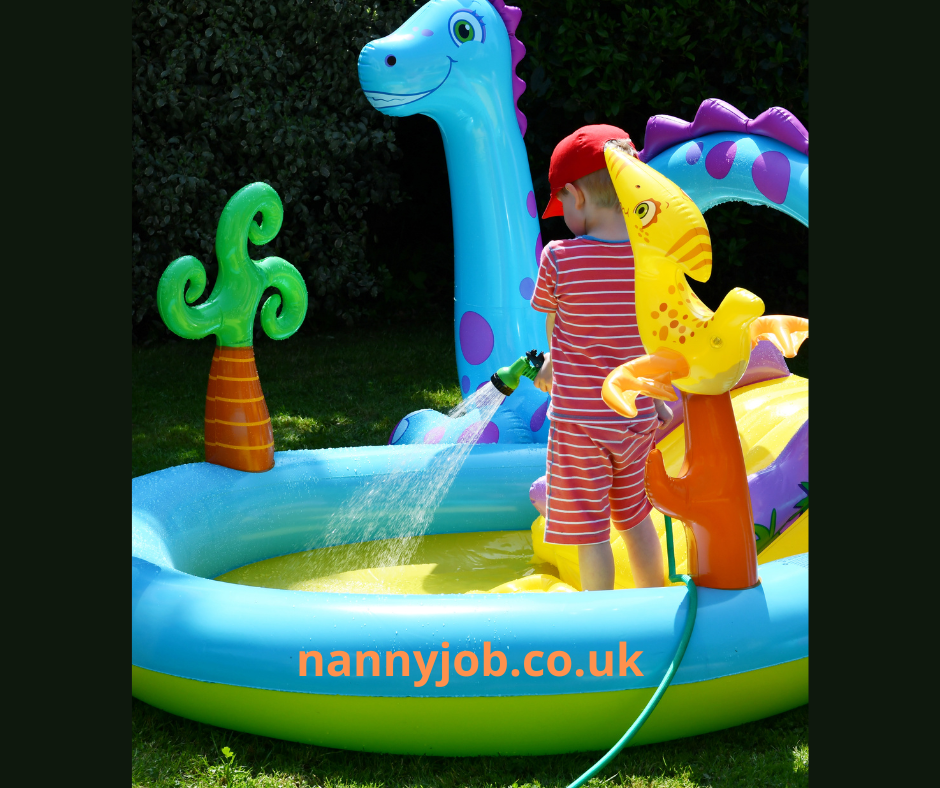Many nannies dream of working of a VIP or even celebrity family. It’s a hidden world where nannies sign extensive confidentiality and non-disclosure agreements* but get to travel in private jets, stay in 5* luxury and get designer handbags as bonuses. Take a peek inside and meet The Royal Nanny, The Super-Wealthy Nanny and The High Profile Nanny.

Many nannies dream of working of a VIP or even celebrity family. It’s a hidden world where nannies sign extensive confidentiality and non-disclosure agreements* but get to travel in private jets, stay in 5* luxury and get designer handbags as bonuses. Take a peek inside and meet The Royal Nanny, The Super-Wealthy Nanny and The High Profile Nanny.
What’s it like day to day?
The Royal Nanny: I wake the children up and supervise them getting dressed and so on in the morning. Then we go down to breakfast, which is prepared and cleared away so I don’t have to do anything, which is amazing! I usually talk to the kitchen staff about lunch and dinner while the children are eating and any other staff who will be involved in the day. After breakfast if the children’s mother is around we’ll go and see her for up to an hour and then we might spend time in the gardens, at the pool or inside doing some structured activities. It’s difficult to do normal things in the compound but I try and organise some time in the kitchen every so often so we can bake, for example. Often there are cousins around so we might play with them. After lunch it’s time for a rest, and then the afternoon is the same as the morning, but we’re more likely to go out if the children’s mother wants to. Dinner is eaten later than I was used to, and then I supervise bedtime. After that I report to my employers on what we did that day and I’m off duty until the next morning. We travel quite a lot and then I find we all work a lot more, which is annoying because it’s easier to go out when you’re in a big city!
The High-Profile Nanny: It’s really normal! Sometimes the kids are up when I get there, sometimes they aren’t. I do breakfast, tidy up, gather up school shoes and reading bag and anything that needs to go back to school and do the school run. Then there’s usually toddler group, Gymboree or a playdate in the morning, back for lunch and nap while I get nursery duties done before going back to school, running round any after school activities or playdates, home for dinner and bath and by then one of my bosses is usually home and I leave!
The Super-Wealthy Nanny: I work 24 hours so anytime the littlest one wakes in the night I get up. We all have to be up by 7.15 and get ready for the day. Usually the housekeeper prepares breakfast so all we have to do is go downstairs and she tidies up too so once breakfast is done we brush teeth in the downstairs bathroom and it’s straight out the door to school. The older ones are responsible for their own school stuff, just because they’re really rich doesn’t mean they can’t start taking responsibility for themselves. The driver takes us to school and then to whatever activity the little ones are doing. The days are actually really busy because they do a lot but it’s never just me so some days I’ll pick up both the older ones from school and plan something for everyone but twice a week the oldest has something after school so the driver goes back later and I stay with the other three. It’s tough to organise going to play with friends because of the security. Sometimes I feel a bit awkward saying that my charge will be accompanied by a bodyguard! When we got home we have to fit in homework and music practice and so on. My bosses definitely expect to see results from what they pay for so the children work hard. I don’t have to worry about dinner because either the housekeeper prepares it or we have something from the freezer. I try to have everyone in bed by 8.30 because it’s only when they’re down that it’s my time! We have a duty bedroom in the main house where we stay but if it’s changeover night then the other nanny will arrive about 6 and I can go to the place we share, or go out!
What has been your best experience?
The Royal Nanny: There have been loads but staying on a private island was probably the best.
The High-Profile Nanny: Just my boss saying thanks for keeping the kids safe and letting them have a normal childhood. It made me feel like I was doing my job right.
The Super-Wealthy Nanny: It was when the family just arrived in London and my charges had no toys. The mother drove us to Hamleys and told me to buy anything I wanted for them. I don’t know who was more excited – my charges or me!
What has been the worst experience?
The Royal Nanny: Accompanying my employers and the children to a major event and being caught up in a security breach. It was terrifying. I honestly thought someone was coming after the family I work for.
The High-Profile Nanny: The first time there was a big news story involving my boss – I was convinced everyone I spoke to was a journalist waiting for me to say something stupid.
The Super-Wealthy Nanny: Getting lost in one of their houses. I was only going to the kitchen to get some bottled water and I was gone for 20 minutes when I thought I’d be 3, tops. I came back to find my boss in the playroom looking really puzzled by why I’d been gone so long. I tried to explain what had happened and she just made me feel like a worm. I didn’t leave my charges alone – there was someone else there – but neither of us knew the house and I thought I knew where I was going, except I didn’t! I still don’t really get what I did that was so wrong because I think I’ve messed up worse other times but that time it was the reaction that made it really bad.
What was the biggest change for you?
The Royal Nanny: It was the formality and learning all the rules. There are rules about who you can and can’t speak to if they don’t speak to you first, what you have to call them, whether you’re expected to curtsey in public and so on and then you have to remember what you have to teach the children because the rules are different for them. There are even hierarchies in the household servants and between the other nannies, which is a bit crazy.
The High-Profile Nanny: Having to be really, really careful about media attention.
The Super-Wealthy Nanny: Working in a team with another nanny. Luckily we really get along, but when I started they just had me during the week and a weekend nanny who came daily so it wasn’t too different to a normal job, except instead of the parents letting my charges watch too much TV it was the other nanny! Then it changed so we work 4 days on and have 3 off, and sometimes we work 7 days straight, or on holiday it’s usually half days. It all gets a bit complicated because it’s our responsibility to work it out and make sure there’s always someone there. But when we first started with this system we weren’t communicating well so stuff for school got forgotten or one would arrange a play date for the other’s day and not say anything.
Do you really travel by private jet, stay in 5* hotels and get a designer handbag as a bonus?
The Royal Nanny: We have sort of travelled by private jet and if we stay anywhere that isn’t family or friends then it’s 5* but I’ve never had a designer handbag bonus.
The High-Profile Nanny: No, not at all! I work for a totally normally family where one of my bosses just happens to have a job that’s in the papers a lot. I would love a designer handbag…
The Super-Wealthy Nanny: Yes, we do. I got a gorgeous handbag for my birthday last year. I’m such a cliché!
What piece of advice would you give anyone who wants your job?
The Royal Nanny: Put time into acquiring skills and qualifications that will make you fit in with their lifestyle and simultaneously allow you to deliver top quality care. Most nannies I meet have some kind of teaching experience, especially for older children, because a big part of the role is preparing the children for school, or possibly even educating them at home.
The High-Profile Nanny: Develop a really thick skin. People will say all sorts of things about you and your employers because they’re in the public eye and it can be hurtful to hear or read it, especially when it isn’t true. You have to put it out of your mind because the children come first.
The Super-Wealthy Nanny: Don’t let the way they flash their cash make you feel embarrassed. It can seem really over the top at first, and I suppose it is, but you’ll be hanging out with other people who find it normal so you’ll stick out more if you look uncomfortable.
*no confidentiality agreements were broken or harmed in any way in the production of this post










